Facebook and Twitter is two biggest social networks in the world. As a result, they may be one of the best way for company to approach to their customer. The question is: which one performs better in the game of advertising and is it worth the money to put ads on facebook and twitter?
1. History:
Facebook was launched by Mark Zuckerberg, along with his college roommates, in February 2004. The company went IPO on Friday, May 18, 2012. The IPO was the biggest in technology and one of the biggest in the history, with a peak market capitalisation of over $104bn (Matt, 2012). At the moment, Facebook is the biggest social network in the world with more than 1.2 billion users and keeps growing rapidly.
On the other side, Twitter was founded on March, 2006 by Jack Dorsey. And after 6 years of operating, Twitter becomes one of the biggest rivals of Facebook with 140+ million active users, creating over one billion Tweets every three days (Ochman, 2012).
2. Facebook vs Twitter: Network reach
Although Twitter grows rapidly, Facebook is still the winner when comes to network reach, with 1.32 billion active users compared to 232 active users of Twitter. While each day, users on Twitter share 500m tweets each day, it is nothing in comparison to 4.75bn items posted daily on Facebook. As a result, Facebook accounts for 57% of social media advertising budget when Twitter only has 13% (Long, 2013).
Conclusion: Facebook wins.
3. Facebook vs Twitter: Ad Performances
It is difficult to measure ad performance because the limitation in data. However, companies have to pay more if they want to appear on Facebook ads. Revenue per visitors for Facebook is also higher than that of Twitter, $0.93 and $0.44 respectively. It is also found that Facebook has lost ground in share of social referred visits, with a 20% decrease YOY, bringing it to 62%. However, that still beats out Twitter’s paltry 6.8% share of social visits, though it’s increased 258% this year (Kim, 2013).
However, when asked for satisfaction with the return on advertisement on Facebook, only 14.8% marketers answer very satisfied, while a huge number of marketers only somewhat satisfied with the results (64.8%) and more than 20% of marketers dissatisfied with the results (Learmonth, 2013). On the other hand, Twitter touts its Promoted Trends product, reporting a 22% lift in brand conversion and 32% lift in retweets.Furthermore, Twitter generates more clicks on its ads (Shields, 2014). However, it is too pricey for small business at up to $200,000 per day (Kim, 2013).
Conclusion: Twitter has potential but needs to prove more. Facebook is still the winner.
4. Facebook vs Twitter: Mobile Ad Performance
Twitter has an inherent mobile advantage, because Promoted Tweets are in-stream and therefore look and feel natural for mobile users (Kim, 2013). While Facebook is way behind in mobile, 55% of users access Twitter on mobile, with 40% growth quarter over quarter. Promoted Tweets fit perfectly into the mobile app (Ochman, 2012).
However, mobile advertisements are growing strong on Facebook. With mobile drive their revenue at the time of 2015, about 87% of Facebook ‘s monthly active users visited from mobile devices, up 24% from a year ago. That translates into 1.25 billion people out of its total monthly active users of 1.44 billion (King, 2015).
Conclusion: It is a draw between Facebook and Twitter. Although Twitter has more advantages on mobile ads, Facebook is growing strong and improving.
5. Facebook vs Twitter: Ad Formats
Facebook has had to work hard at simplifying its ad offerings for marketers, and it announced big changes in 2013, when it promised to cut the number of ad formats by more than half by the end of the year. On the other hand, Twitter’s ad format have always been simple, with just 3 products: Promoted Tweets, Promoted Accounts and Promoted Trends.
Conclusion: No winner here, both are simple and easy to follow!!!
6. Conclusion:
All in all, Facebook still the winner in advertisement world. However, Twitter has a lot of potential to develop in the future. Although Twitter has a lot to catch up with Facebook, it is still a young company with a lot of space to grow.
References:
Bultman, M. (2015). Facebook IPO to Make Dobbs Ferry’s Mark Zuckerberg a $24 Billion Man | The Greenburgh Daily Voice. [online] The Greenburgh Daily Voice. Available at: http://greenburgh.dailyvoice.com/news/facebook-ipo-make-dobbs-ferrys-mark-zuckerberg [Accessed 29 Apr. 2015].
Kim, L. (2015). Twitter vs. Facebook Ad Showdown: Which Offers the Best Social Media Ad Platform?. [online] MarketingProfs. Available at: http://www.marketingprofs.com/articles/2013/12350/twitter-vs-facebook-ad-showdown-which-offers-the-best-social-media-ad-platform [Accessed 29 Apr. 2015].
King, H. (2015). Facebook’s mobile ad revenue jumps. [online] CNNMoney. Available at: http://money.cnn.com/2015/04/22/technology/social/facebook-earnings-first-quarter-2015/ [Accessed 29 Apr. 2015].
Learmonth, M. (2013). Exclusive Survey: What Advertisers Really Think About Facebook. [online] Adage.com. Available at: http://adage.com/article/special-report-digital-alist-2013/exclusive-survey-advertisers-facebook/239996/ [Accessed 29 Apr. 2015].
Long, M. (2013). Social Media Advertising Statistics And Trends To Get Your Company Off Its Duff And Online [INFOGRAPHIC]. [online] Adweek.com. Available at: http://www.adweek.com/socialtimes/social-media-advertising-statistics/480833?red=at [Accessed 29 Apr. 2015].
Ochman, B. (2012). Why Twitter Is a Better Brand Platform Than Facebook. [online] Adage.com. Available at: http://adage.com/article/digitalnext/twitter-a-brand-platform-facebook/235115/ [Accessed 29 Apr. 2015].
Shields, M. (2015). Advertisers Spend Much More With Facebook But Twitter Performs Better. [online] WSJ. Available at: http://blogs.wsj.com/cmo/2014/04/04/advertisers-spend-much-more-with-facebook-but-twitter-performs-better/ [Accessed 29 Apr. 2015].


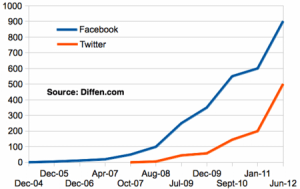
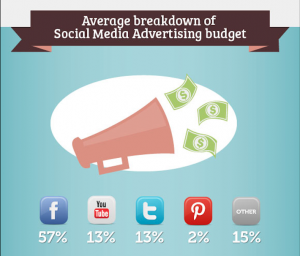
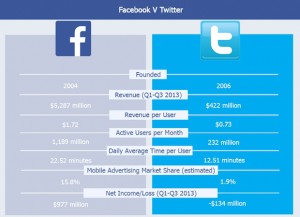
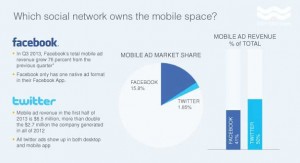
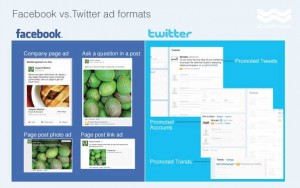
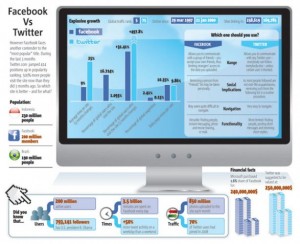
Your post showcases the power of passive income and the potential it holds for achieving financial independence. It’s a motivating reminder to build assets that generate money even when we’re not actively working. To explore further, click here.